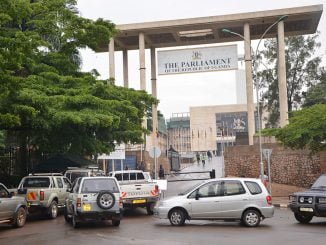
Kampala, Uganda | By Ben Carson and Lindsey Kukunda | Do groups on Facebook promote racism or encourage like-minded people to get together?
One ordinary day in January 2012, a group on Facebook, Muzungus in Uganda, received online attention that the members had not bargained for when the moderator of the group, Mr. Adam Williams, put a problem to his members thus:
“I’m getting at least 50 requests every day for Ugandans to join Muzungus in Uganda group. What should I do? This forum is supposed to be a place for expats, living in Uganda (hence the name of the page) to share their views along with hints and tips etc etc. If I had accepted every request from a non- Muzungus in Uganda this page would have 15,000 members of which 1,000 would actually be Muzungus in Uganda. Any thoughts?”
Public reaction may have been less acidic if the members had not responded with comments that Ugandans interpreted as racist. Below are some of them:
“Adam, we love this group, please control it as best you judge, but as far as I can say, too much ‘wolokoso’ kills the vibe. BANANGE.”
“My thought is that it is a muzungu page. How is anyone supposed to vet people if there are so many requests? I know it sounds like profiling- but it’s a site for expats.”
“Am I the only one who finds it absurd that someone joins a group called ‘Muzungus in Uganda?’ Only to be offended that it turns out to be a group for ‘Muzungus in Uganda?’”
A good number of Ugandans were livid. Their comments ran thus:
“What is this group of foreigners discussing our importance in our own country, they queried? We didn’t even care about them before they started this topic on a public and open forum. How disrespectful!”
“They say Ugandans want them for money and love? As if they do not receive similar requests as soon as they hit the streets of Kampala.”
“They’re even discriminating against their own. Is the group for Bazungu or Expatriates? What about those married to Ugandans?”
Other Ugandans told those above to mind their own business. If you’re not a Muzungu, why care about the page to begin with? Expatriate Ben Carson, asked to share his views on this matter.
His point of view
“Let’s be honest: Many expats do not trust Ugandans. They have been burned before — by a guard who robbed them instead of protecting them, by a taxi conductor who refused to give them a balance for a 5,000 shilling note, by a staff member who made off with the merchandise. They have trusted and been disappointed. They have conditioned themselves to believe they can only trust people who are not from here.
While I don’t feel that same way, I can understand why expatriates would feel the need for a cultural space — a space to vent frustrations that the draught beer at Mish Mash is never available, for instance.
I’m just not sure why that group needs to be on Facebook. It is one thing to reflect on your own cultural values with friends. It is quite another to do so with strangers with the assumption that you somehow share something based on what you are not.
The Muzungus in Uganda group on Facebook sought to find commonality in expatriates’ “otherness.” The justification for excluding Ugandans became that they are different from us — despite the fact that we expats are different from each other. The refrain is: They don’t understand; they just don’t “get it”. Yet, having lived in Uganda for several years, when I think of people who don’t get it, I think about expats, not Ugandans.
Which is why I’m perplexed by the answers the moderator of the group Muzungus in Uganda gave in response to his own question: Should Ugandans be allowed to join a group designed for expatriates?
The justification he used was that there are plenty of groups on Facebook designed for certain demographics — even one for Ugandans in London. He also explained that this would be a good resource for Ugandans to find matoke. But this is not London and I am not searching for matoke. I’m looking for an apartment or a car or a washing machine. Ugandans buy and sell those things too, although not as frequently as internationals on short-term contracts.
Several members chimed in that expats need the group to be exclusive because we get overcharged for services, but that’s a head scratcher. Who am I going to ask about the proper price of furniture: a Ugandan who lives here or a UN consultant who paid $800 for a sofa from Ggaba Road? (Note to expats: Yes, that is way too much money for a sofa from Ggaba Road.)
Reading the sub text of the comments, it becomes clear that the underlying issue is trust. With the moderator receiving “at least 50 requests a day” from non-expats, many members feared the group would become a forum for frauds and con men. They feared, essentially, that if too many Ugandans joined, it would no longer feature reliable and independent information — as if no expats use the group to push their business interests or make money.
Yet, mistrust only breeds mistrust. Of the many Ugandans that want to join, can’t we be certain that a good portion have something worthy to contribute? Can’t we be sure that many are good people who want to make their world a better place, even if their starting point is providing helpful advice to a stranger on a Facebook page?
And if we can’t answer yes to those two questions, what makes us think that an anonymous expat is trustworthy?”
Truer words were never written, Mr. Carson. There is more here than mere racial profiling. The discussion on Muzungus in Uganda had less to do with group members wanting to stick together as it did with group members wanting to keep black people out.
In school, it’s called bullying. In the real world, it borders on blatant racism. Political correctness here dictates that we call it racial profiling. Bullying/racism/racial profiling would not be justified in the countries these Muzungus come from. Need more be said



